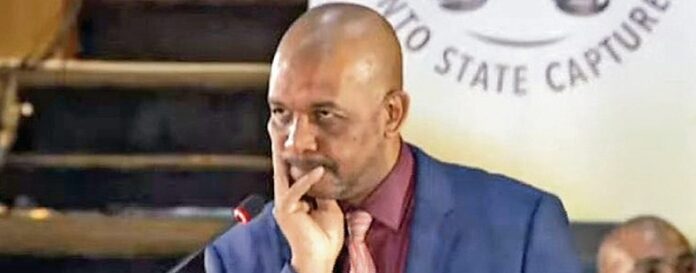The Legal Practice Council (LPC) broke its silence Sunday, addressing what it termed “misleading narratives” surrounding high-profile disciplinary proceedings against advocate Dali Mpofu SC and information about judicial disengagement.
Based on insider information, Sunday World reported last weekend that the judges on whose names the complaints were lodged against Mpofu had informed the LPC — the statutory body responsible for regulating the South African legal profession, that they would not be participating.
LPC declines to comment
While the LPC then declined to comment on the media query, the body’s Gauteng provincial division said this weekend that “the said judges, including Judge President Mlambo, have not indicated that they will be unwilling to testify in the disciplinary proceedings against Mpofu SC”.
The others involved are Judge Joseph Raulinga, Judge Mpostoli Twala, and Judge Ingrid Opperman.
“The LPC generally does not require judges, due to their position as judicial officers, to testify in disciplinary proceedings. Reliance is normally placed on their written judgments and any transcripts of the relevant proceedings,” LPC spokesperson Kabelo Letebele said.
Letebele added that former ANC MP Richard Dyantyi was still among the witnesses who may be called to testify in disciplinary proceedings of the LPC.
Matter of public record
“The alleged unethical conduct of Mpofu SC is a matter of public record that has generated significant public debate. Both in support of and against the reported actions. Therefore, it is appropriate for an independent disciplinary body to evaluate the conduct and determine its acceptability. Ultimately, the role of the LPC is to provide a framework for the conduct to be assessed in terms of the Code of Conduct for Legal Practitioners.”
In the statement of clarity, Letebele explained that the LPC is composed of both a national council and nine provincial councils. Each is made up of elected and appointed councillors.
“Each council has its own employees and may engage legal practitioners on an ad hoc basis. They will serve on investigation committees and disciplinary committees of the LPC. These committees operate at the provincial level and perform their statutory functions on behalf of the LPC. However, the LPC does not interfere in the performance of their functions,” Letebele added.
Commitment
He reaffirmed the council’s commitment to due process.
“The LPC is responsible for addressing allegations of unprofessional conduct that come to its attention. This is regardless of how the council becomes aware of them. Anyone who believes that a legal practitioner has acted unprofessionally has the right to file a complaint. Then the complaint will be investigated. It is not necessary for the individual to have been a client of the legal practitioner or to have been personally affected by the alleged conduct.”
Ongoing scrutiny
Letebele stressed on the ongoing scrutiny of Mpofu SC’s conduct. “It is a matter of public record that has generated significant public debate.”
He said: “It is appropriate for an independent disciplinary body to evaluate the conduct and determine its acceptability. Ultimately, the role of the LPC is to provide a framework for the conduct to be assessed. This in terms of the Code of Conduct for Legal Practitioners.”



